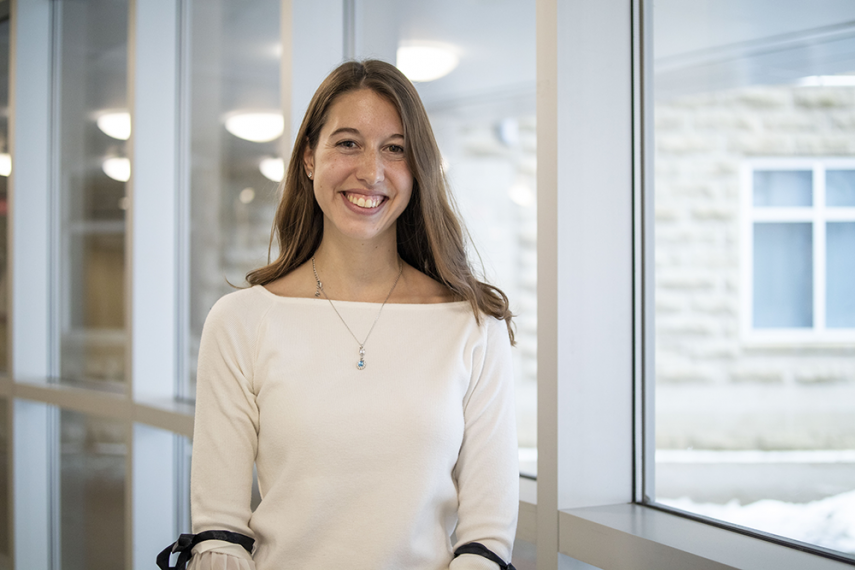A Journey to Improve Canadians’ Mental Health Begins at U of G

The intersection of healthcare, mental health and AI is where PhD student Alysha Cooper’s passions lie, first explored through her unique master’s research using neural networks to predict an individual’s risk of developing bipolar disorder.
Neural networks are a subfield of AI that work by mimicking operations of the human brain to recognize relationships between data. These networks create opportunities to answer complex AI questions. When applied to healthcare and mental health, neural networks have enormous potential to improve the wellbeing of Canadians.
While a master’s student at the University of Guelph (U of G), Cooper compared several mathematical models to assess their ability to predict the time it would take to diagnose at-risk individuals with bipolar disorder. An article co-authored by her faculty advisor, Dr. Julie Horrocks, and collaborators, was recently published.
“Alysha’s research demonstrates the potential for neural networks to improve our mental health systems,” says Horrocks. “Finding the best models and methods for predicting complex mental health disorder diagnoses over time is important, as early diagnoses could lead to earlier intervention for at-risk individuals.”
Cooper’s interest in youth mental health began long before she came to Guelph. Starting in high school and continuing through her undergraduate degree in psychology at U of G, she participated in Best Buddies Canada, a program to create lasting friendships between people with and without an intellectual or developmental disability. She also became a Peer Counsellor for the Student Support Network to lend a supportive ear to fellow students on campus.
Through her master’s studies, Cooper developed skills in research, as well as technical skills and ethical AI knowledge, which she applied shortly after graduation in a data analyst role at Homewood Research Institute (HRI).
“I was responsible for organizing and analyzing data collected through HRI’s research, and for translating the findings into solutions—including the potential of machine learning—which can be applied to mental health and addictions,” says Cooper.
Cooper’s work at HRI included looking at associations between individuals’ impulsivity, mental health and substance use.
Cooper felt the itch to turn a lens towards her physical health interests and returned to U of G in fall 2021 to pursue her PhD, for which she received an Ontario Graduate Scholarship. Working with Drs. Ayesha Ali and Zeny Feng in the Department of Mathematics and Statistics, Cooper will leverage advanced computational and mathematical methods alongside machine learning to examine bacteria in the gut.
“I have always been fascinated by both genetics and the gut microbiome. The gut microbiome has been found to be linked to more than just diseases and is now being studied for its connection to mental health,” says Cooper. “I hope to learn more about analyses of the gut microbiome so that I could one day potentially work on research for its connection to mental health. In doing so, I also plan to further my skills in complex statistical techniques and solving problems with statistical models.”
Read Predicting the risk and timing of major mood disorder in offspring of bipolar parents: exploring the utility of a neural network approach in the International Journal of Bipolar Disorders.
This article was originally published in the CEPS 2020–21 Annual Report: It Starts Here.